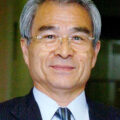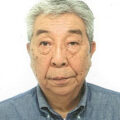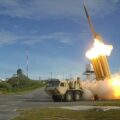Women, Peace and Security as a Trump Card in “Multiple Crises”
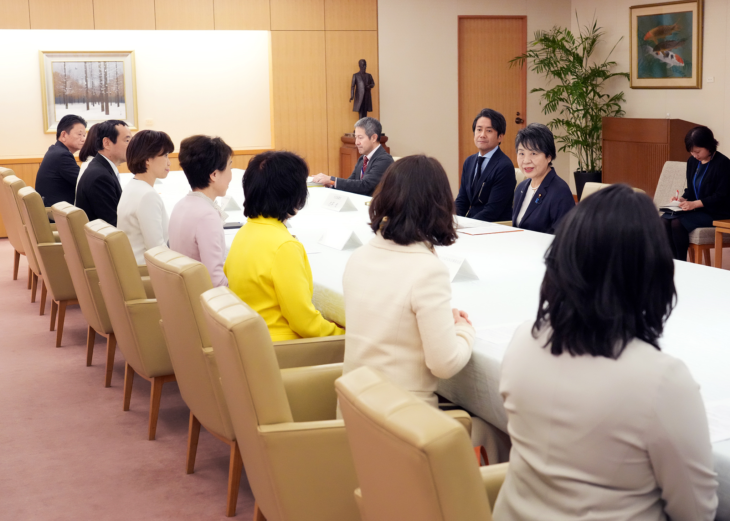
Foreign Minister Kamikawa Yoko has been active in promoting the Women, Peace and Security (WPS) agenda. She chairs the WPS Parliamentarians’ Network Japan, a parliamentary caucus of about 50 members of the ruling party that aims to enact a WPS act, which has attracted particular attention from overseas.
Photo: Ministry of Foreign Affairs
Women, Peace and Security (WPS) is in the spotlight a quarter of a century after it was first proposed. This is because there is a growing recognition that understanding problems from women’s perspectives and promoting their resolution is the essence of conflict resolution. The author will explain WPS through the events in Thailand’s Deep South, where the author has been involved, and consider the significance of deepening WPS in the world and in Japan.
In September 2023, for the first time in 19 years, a female foreign minister was appointed in Japan: Foreign Minister Kamikawa Yoko. Since taking office, she has been proactive in promoting the Women, Peace and Security (WPS) agenda. She has spoken at bilateral foreign ministers’ meetings and international conferences on promoting the WPS agenda and strengthening cooperation on WPS. She has received high praise from UN agencies and G7 countries, who have said that “Japan has finally begun to take an interest in this field,” and many voices have praised Foreign Minister Kamikawa’s leadership. The WPS agenda dates back to 2000 with UN Security Council Resolution 1325 (the first UN Security Council resolution specifically related to women and peace and security issues), and is by no means a recent topic of discussion. However, the term WPS only began to be discussed in Japan after the appointment of Foreign Minister Kamikawa. This movement was a response to global discussions. It was a time when women’s specific issues were highlighted during the COVID-19 pandemic, and also a time when discussions on WPS became more active as we entered the “new 20 years” following the 20th anniversary of the resolution.
Supported by “Human Security”
The original resolution was adopted at the World Conference on Women held in Beijing in 1995 on “Women and Armed Conflict.” Subsequently, goals such as gender equality and women’s rights, which had been dealt with by the Economic and Social Council of the United Nations, were recognized as being on the agenda of the Security Council. In addition, the emergence of the concept of “human security” the year before, in 1994, had a major impact in redefining the concept of security not only as “national security” but also as the “security of ordinary citizens.”
In this context, United Nations Security Council Resolution 1325, adopted in 2000, was the first resolution to link “women” to the context of international peace and security. This resolution recognizes the negative impact on women and children in conflict situations and emphasizes the need to identify and respond to the specific needs of women and girls. It is also groundbreaking in that it recognizes the important role of women in addressing security threats and calls for the “meaningful participation of women” in conflict prevention, conflict resolution and peacebuilding efforts. Since 2000, there have been a total of 10 WPS-related resolutions, collectively referred to as the “WPS Agenda.”
Over the past 20 years, several studies have been conducted on WPS, and some interesting results have emerged. For example, one analysis[1] found that “increasing the number of women legislators and improving literacy rates reduces the risk of civil war recurrence.” According to a study of 58 regions that became conflict zones between 1980 and 2003, when there are no women or few women in the legislature, the risk of conflict recurrence increases over time, but when more than 35 percent of the parliament is made up of women, the recurrence rate is almost zero. In addition, “for every five percent increase in the percentage of women in parliament, a state is five times less likely to use violence in the face of an international crisis,” and “where women are more empowered, countries are less likely to go to war with their neighbors or be plagued by crime and violence within their society.”[2] In other words, the more active women are as leaders, the more likely a country is to avoid violent solutions to problems, and the more female legislators there are, the less conflict recurs in conflict zones. The relationship between women’s active participation and peace is very strong.
There is also data showing that women’s participation in peace negotiations to end conflict increases the likelihood of a peace agreement lasting more than two years to 20%, and the likelihood of a peace agreement lasting 15 years to 35%. It is said that women are more likely to raise issues of social and humanitarian needs in peace negotiations, not just issues of military action, power and territory. This is not simply because “women prefer peace more than men.” There are biological and social differences between men’s and women’s experiences, and women’s experiences are just as valuable as men’s, but they have not been given much attention. By focusing on women’s experiences and incorporating their perspectives, new and diverse values are created and contribute to building a peaceful society.
Bringing women’s voices into peace dialogue
As someone who works in the field of peacebuilding, especially in what is known as mediation support, the author feels that the results of these studies confirm the importance of her own activities. The author has been involved in peacebuilding efforts in Thailand’s Deep South conflict for many years. In fact, the author has been to many villages where there are only women, children, and elderly people, areas that the Thai government considers “militant-inhabited.” The men in these areas have either been killed in the fighting, captured, or have fled to neighboring Malaysia. It is women who are involved in everything from caring for their families to running their villages, and they are the most informed on the ground and understand the needs of the people. However, women are absent from the peace dialogue between the Thai government and the armed forces that began in 2013. A peace agreement that does not reflect the voices of these women will never build a peaceful society. This is clear from various conflict studies. That is why the author and her colleagues are supporting women’s leadership training in Thailand’s Deep South, organizing women’s groups, and bringing their demands to the peace dialogue table. Living with traditional values, these women need more help to become leaders and take charge of rebuilding their conflict-torn societies. Gradually, women who have gained confidence rise to the occasion, and others follow; the content of the WPS agenda is achieved through the accumulation of such activities on the ground.
The WPS agenda is also being promoted by the military of Western countries
Initially, national discussions on WPS were discussed in the context of international cooperation to support conflict zones, but [since 2017], when Canada, France, and Germany adopted the Feminist Foreign Policy at the G7, the promotion of the WPS agenda became one of the main frameworks of support. There have been other changes in recent years. Each country has also begun to focus on promoting WPS within its own military. It is said that this is due to considerations based on their own experiences. Having lived through the wars in Iraq and Afghanistan and having served in regional security missions, they have come to realize that listening to women’s voices and understanding their culture and religion is essential, especially in maintaining security. The results of the WPS research have also been praised for women’s accurate understanding of the situation on the ground, such as “women know a lot about day-to-day security issues, such as where landmines are buried and threats to civilians” and “women have different information than men, so they also make a great contribution to criminal investigations.” There is a growing awareness that knowing their needs and supporting them at the same time will lead to effective action.
The question of how to communicate with these women became an issue, and that is how the concrete measures began to take shape. Based on the experience that in order to talk to women, you need women in the troops, there is a growing understanding that, especially in operations in Islamic countries, it is strategically essential to increase the number of female personnel in one’s military, to have female personnel participate in decision-making, and to include a female perspective in all activities, in other words, to put into practice what is discussed in the WPS agenda.
NATO has had a Special Representative of the Secretary General for WPS since 2012. In the NATO military, WPS is recognized as a cross-cutting issue that affects all missions and all countries, and gender advisors are appointed in a dual position in all services. In addition, NATO forces are conducting gender education, incorporating gender issues into training and evaluation, and working to institutionalize and systematize the consideration of women’s perspectives at the military operational level. Although the United States lags slightly behind Europe in its efforts, it was the first country in the world to pass WPS legislation in 2017 under the Trump administration, and in 2019, the Office of WPS was established in the U.S. Indo-Pacific Command, with a responsible officer. The role of WPS officers is also said to have been extremely important when a large number of refugee evacuation operations were carried out following the fall of Kabul, Afghanistan in August 2021. In August 2023, the Office of WPS held a training session for gender advisers from allied and partner countries, which was also attended by members of the Self-Defense Forces of Japan. A total of five people have been assigned to NATO as assistant special representatives for WPS. In this way, military organizations are promoting their own country’s WPS agenda and cooperating with other countries.
WPS initiatives in Japan
Since around 2013, Japan has been actively providing support that incorporates a gender perspective and promotes the WPS agenda within the framework of international cooperation, mainly through the Ministry of Foreign Affairs and Japan International Cooperation Agency (JICA). The Ministry of Defense and the Self-Defense Forces have also accelerated WPS-related activities within the framework of international cooperation. However, this has been done only in the context of international cooperation, and there has been no organizational reform or design of a training system within ministries and agencies based on the principles of the WPS agenda. However, in 2023, the relevant ministries and agencies formulated Japan’s National Action Plan on Women, Peace and Security Third Edition, which includes promoting the WPS agenda in disaster prevention, disaster relief, climate change and reconstruction, and also mentions domestic efforts. As there are many relevant ministries and agencies, it is expected that more efforts will be made to promote the WPS agenda in Japan.
In addition, the Diet has also begun WPS-related activities for Diet members as a group. At the initiative of Diet member Kamikawa, it began activities as the “WPS Parliamentarians’ Network Japan” in October 2022. Since then, with Chairman Kamikawa at the center, it has actively worked on making recommendations for the G7 Hiroshima Summit in 2023, held meetings to learn about WPS efforts from embassies of various countries, and met with dignitaries who have visited Japan. Recently, in response to the Noto Peninsula earthquake and in preparation for the Japan-Ukraine Conference for Promoting Economic Growth and Reconstruction, the Diet submitted a proposal to relevant ministers calling for the implementation of the WPS agenda in reconstruction. In addition, the WPS Parliamentarians’ Network Japan, a parliamentary caucus of about 50 members of the ruling party with the aim of enacting a WPS act, is attracting particular attention from the United States, Canada and Australia for its future activities.
Developing female leaders leads to “meaningful participation of women”
The most important point of the WPS agenda is to provide assistance that takes into account women’s specific issues and needs and to promote the “meaningful participation of women,” such as women’s participation in decision-making processes in peace and security activities. However, no matter how much the promotion of the WPS agenda is advocated, it is not easily implemented in conflict zones or in emergency situations, as there has been little progress in women’s meaningful participation in peacetime.
In the case of the Noto Peninsula earthquake, the problems raised include the fact that women’s perspectives are not reflected in the identification of shelter needs, and that there are only a few cases of women leading shelters. This is related to the extent to which women as leaders, such as local assembly members and neighborhood association presidents, have participated in the decision-making process to solve local problems in peacetime. To put the WPS agenda into practice, women’s daily involvement in “politics,” where policies are decided and rules are created, will be the driving force in promoting “women’s meaningful participation.”
Currently, women make up 10% of the members of the Lower House in Japan. While working as Policy Secretary to a member of the Diet, the author witnessed firsthand that 90% of men decide and run the rules of Nagatacho (the center of Japanese politics). The extremely low participation of women in the political field is pushing down Japan’s Gender Gap Index points. The author is currently launching and supporting a project to promote women’s political participation. But even if women are aware of the problems, many of them do not have the opportunity to become politicians and solve them in their careers. Even if they want to become a politician, the hurdles of election rules, financing, and political activities are high in Japan, and many women give up without the support of their families. If we want to increase the number of female local and national assembly members, we need to revise election rules and change the way many people work, their lifestyles, and the division of roles and stereotypes between men and women. This is directly related to the WPS discussion, which advocates for the inclusion of women’s perspectives in the context of security.
“An era of complex crises” and WPS
The author believes that “WPS” is a kind of slogan. It is about whether women’s perspectives are taken into account in all security-related issues and whether women are involved in decision-making processes. WPS is a symbol that keeps these things in mind, affirms them, and continues to work for change. It’s not just a call to action that says, “Let’s move forward because it’s the right thing to do and it’s a good thing,” but it’s based on the recognition that it’s strategically essential for security. That is why Western countries have begun to focus on promoting the WPS agenda in their own countries. If that is the case, then it goes without saying that it is strategically important for Japan, which is in one of the world’s most challenging security environments, to also promote the WPS agenda and deepen cooperation in this area.
The conflict in Thailand’s Deep South is underreported and unknown to the world. However, this conflict is not only intertwined with historical, socio-economic, and political factors, but has recently been further complicated by disasters caused by abnormal weather and environmental degradation. Looking at the world, while structural changes in the international order are taking place in Ukraine, Gaza, Myanmar, and other places, new threats are being added due to technological advances. Resolving such conflicts will require entirely new ideas, imaginations, and approaches.
“Diversity” is essential to solving these problems. Women make up half the population, but there is a long history of ignoring women’s voices. Of course, there are many other groups whose existence has been ignored, such as minority groups, but the first step to achieving diversity is to position women as representatives of “voices that have not been heard” and to include them in the decision-making process. In this time of crisis, a new way forward can be found by promoting “meaningful participation of women,” especially in the field of security.
Translated from “Josei / Heiwa / Anzenhosho (WPS) ga ‘Fukugo-teki Kiki’ no Kirifuda ni (Women, Peace and Security as a Trump Card in ‘Multiple Crises’),” Gaiko (Diplomacy), Vol. 85 May/Jun. 2024, pp. 122-127. (Courtesy of Toshi Shuppan) [August 2024]
[1] MARIE O’REILLY, report: Why Women? Inclusive security and peaceful societies, Inclusive Society, 2015, Oct. p.10
[2] Delphine Mechoulan, Youssef Mahmoud, Andrea Ó Súilleabháin, and Jimena Leiva Roesch, The SDGs and Prevention for Sustaining Peace: Exploring the Transformative Potential of the Goal on Gender Equality, International peace Institute, 2016, Nov. p.2
Keywords
- Hashimoto Naoko
- International Christian University
- refugees
- World Refugee Day
- Ipsos
- refugee admission
- refugee status
- residence status
- naturalization
- Japanese citizen
- border control
- line
- stages
- Immigration Control Act
- 1951 Refugee Convention
- Indochinese refugees
- Ukraine
- Afghanistan
- asylum
- third-country resettlement
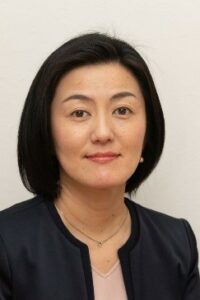 HORIBA Akiko, Ph.D.
HORIBA Akiko, Ph.D.
